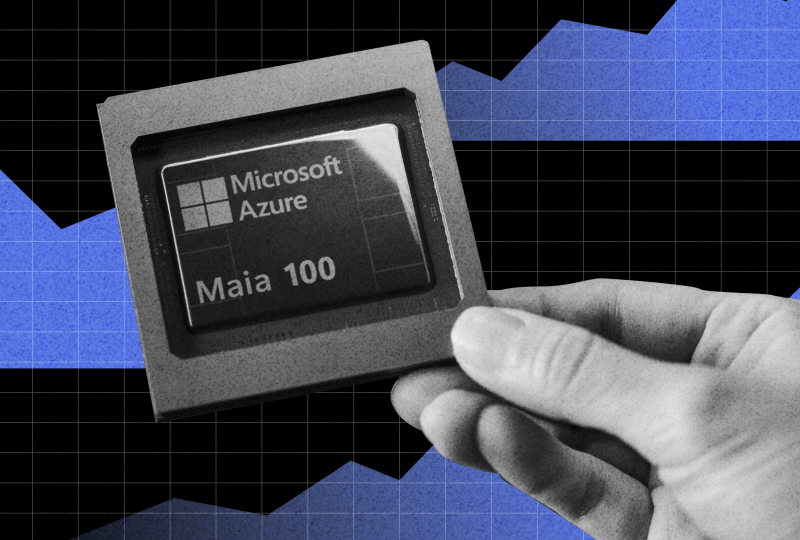Microsoft’s Maia AI: A Strategic Move Towards AI Hardware Independence
Feb 21 2024

Microsoft is creating the Maia AI chip and a special network card to perfect its technological architecture. The reason for this initiative is to reduce the company’s dependency on NVIDIA hardware products.
Thanks to this chip, the Microsoft Azure cloud services will function better and have more possibilities. By introducing the Maia chip, Microsoft seeks to strengthen its position and offer users more coherent cloud computing options.
Recent Advancements in Microsoft’s AI Hardware
Microsoft is working on a custom network card built for the Maia server chip, an important note in recent Microsoft analyst reports. This development is part of Microsoft’s broader initiative to improve its hardware capabilities for using artificial intelligence.
That’s why, last year, Microsoft bought Fungible, a company known for its expertise in DPUs (data processing units). This acquisition will play an essential role in creating the Maia card. Based on Scott Guthrie, Microsoft executive VP, the company is completely redesigning its datacenters to increase efficiency, diversify its supply chain, and provide customers with a choice of infrastructure.
Potential Impacts on Azure and OpenAI
It is expected that the Maia AI chip and the customised network card will drastically improve Azure cloud services. The possibility of lower AI model training costs and timelines is also one of the main benefits.
For OpenAI, which uses Microsoft’s cloud infrastructure to train massive AI models, this breakthrough is highly beneficial. AI hardware innovations aim to boost performance and productivity, which will have an immediate effect on Azure’s capabilities and OpenAI’s service offerings.
Market Dynamics and NVIDIA’s Position
When it comes to network cards and chips for AI, NVIDIA is currently leading, and Microsoft is trying to offer an alternative to NVIDIA AI chips with their new Maia project and a custom network card.
Market Implications
Microsoft’s Maia project introduces potential shifts in the market. Microsoft could alter its partnership with NVIDIA and become a competitor in some areas of the AI hardware business if it starts producing its own AI hardware.
This shift may have an impact on the cloud computing and AI sectors as a whole, encouraging other businesses to think about enhancing their internal resources.
NVIDIA’s Market Performance
Recently, NVIDIA’s stock dropped 5%. This decrease reflects the market’s response to a number of factors, such as competition, expectations in the market, and the mood of investors.
Microsoft’s advancement of AI hardware could potentially impact NVIDIA’s market share in the future, influencing the NVIDIA stocks forecast as investors closely watch these developments. The competition may change if Microsoft makes advancements in AI hardware, which could have an impact on NVIDIA’s plan and AI strategy overall.
Final Remarks
The development of the Maia AI chip is a strategic move that strengthens Microsoft’s position and independence in the market and gives the company the chance to provide more fully integrated services through Azure.
On the other hand, Microsoft’s entry into AI hardware raises questions about how it might affect NVIDIA and the larger market. The market’s sensitivity to these changes may be reflected in the recent 5% decline in NVIDIA’s stock price prior to its earnings announcement. Overall, these trends show how the AI hardware market is changing and how Microsoft’s efforts could encourage more innovation and competition that will benefit both consumers and the industry as a whole.




